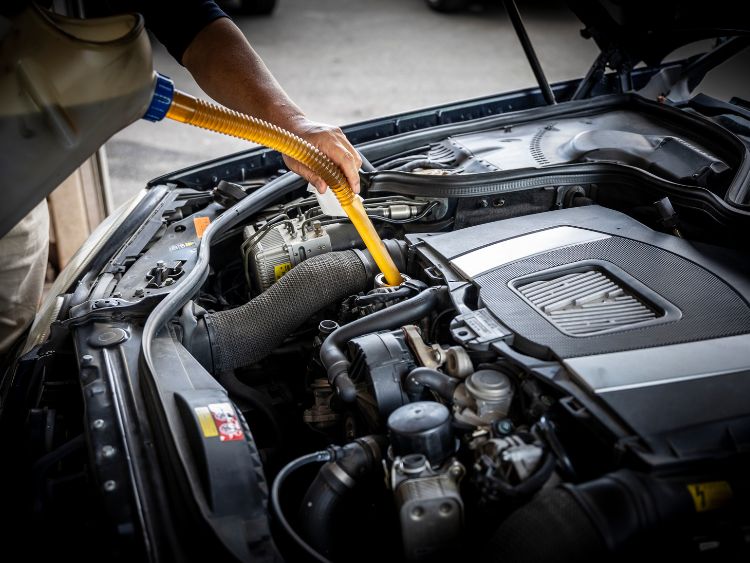So, you’re a proud owner of a Volkswagen, huh? Whether you’re cruising in a classic Beetle or a modern Golf, maintaining your vehicle is crucial. One of the essential maintenance tasks is the oil change. Not only does it keep your engine running smoothly, but it also extends the life of your beloved VW. But how do you go about it? What should you know before diving in? Well, buckle up! We’re about to take a deep dive into everything you need to know about a VW oil change.
Why Is an Oil Change Important?
First things first, why bother with an oil change at all? Well, oil is the lifeblood of your engine. It lubricates the moving parts, reduces friction, and helps keep the engine cool. Over time, oil breaks down and becomes less effective. Dirty oil can cause significant damage to your engine, leading to costly repairs. Regular oil changes ensure your VW runs smoothly and efficiently.
Benefits of Regular Oil Changes
- Improved Engine Performance: Clean oil means less friction and smoother operation.
- Extended Engine Life: Regular oil changes reduce wear and tear, prolonging your engine’s lifespan.
- Better Fuel Efficiency: Fresh oil helps your engine run more efficiently, saving you money on gas.
- Reduced Emissions: Clean oil contributes to lower emissions, making your car more environmentally friendly.
When Should You Change Your VW’s Oil?
Alright, so how often should you be doing this? The answer depends on a few factors, including the model of your VW and your driving habits. Generally, it’s recommended to change your oil every 5,000 to 7,500 miles. However, always check your owner’s manual for the manufacturer’s guidelines.
Signs That Your VW Needs an Oil Change
- Check Engine Light: If this light comes on, it’s often a sign that your oil needs changing.
- Dirty Oil: Check the oil dipstick. If the oil looks dark and dirty, it’s time for a change.
- Engine Noise: Unusual noises from your engine can indicate that the oil isn’t doing its job properly.
- Oil Smell: If you smell oil inside the car, there might be a leak or the oil is burning off due to being old.
Types of Oil for Your VW
Not all oils are created equal. Using the right type of oil is crucial for your VW’s performance and longevity.
Conventional vs. Synthetic Oil
- Conventional Oil: This is the traditional oil used in cars. It’s cheaper but breaks down faster, meaning more frequent changes.
- Synthetic Oil: This is a man-made oil designed to last longer and perform better under extreme temperatures. It’s more expensive but offers better protection and longer intervals between changes.
Choosing the Right Oil
For most modern VWs, synthetic oil is recommended. However, always check your owner’s manual to see the manufacturer’s recommendation. The right viscosity (e.g., 5W-30) is also crucial, as it affects how well the oil flows at different temperatures.
DIY VW Oil Change: Step-by-Step Guide
Feeling adventurous and want to tackle the oil change yourself? Great! Here’s a step-by-step guide to help you through the process.
Tools and Materials You’ll Need
- New oil (check your manual for the correct type and amount)
- New oil filter
- Oil filter wrench
- Socket set
- Oil drain pan
- Funnel
- Jack and jack stands or ramps
- Gloves and rags
Step-by-Step Process
- Prepare Your VW: Park your car on a level surface and let the engine cool down.
- Lift the Car: Use a jack to lift the front of the car and secure it with jack stands or drive it onto ramps.
- Drain the Old Oil: Place the oil drain pan under the drain plug and remove the plug with a socket wrench. Let the oil drain completely.
- Replace the Oil Filter: Use the oil filter wrench to remove the old filter. Lubricate the gasket of the new filter with a bit of fresh oil and screw it in place.
- Add New Oil: Replace the drain plug and remove the oil filler cap. Use a funnel to pour in the new oil.
- Check Oil Level: After adding oil, check the level with the dipstick and top up if necessary.
- Dispose of Old Oil: Properly dispose of the old oil and filter at a recycling center.
Professional VW Oil Change: What to Expect
Not keen on doing it yourself? No worries! Taking your VW to a professional is always a good option.
Finding a Reputable Service Center
Look for certified VW service centers or mechanics with good reviews. Ask for recommendations from friends or family members who own VWs.
What Happens During a Professional Oil Change?
- Inspection: The technician will inspect your car for any other issues.
- Oil Change: They will drain the old oil, replace the filter, and add new oil.
- Additional Services: Many service centers offer a complimentary inspection of other fluids, tire pressure, and more.
Cost of a Professional Oil Change
The cost can vary depending on your location and the type of oil used. Expect to pay between $50 and $100 for a synthetic oil change.
FAQs
How often should I change my VW’s oil?
Generally, every 5,000 to 7,500 miles, but always check your owner’s manual.
Can I switch from conventional to synthetic oil?
Yes, you can switch to synthetic oil, but it’s best to consult your owner’s manual or a professional mechanic first.
What happens if I don’t change my oil?
Neglecting oil changes can lead to engine damage, reduced performance, and costly repairs.
Is it better to change the oil myself or have it done professionally?
It depends on your comfort level and experience. DIY saves money, but professionals offer convenience and additional inspections.
How do I know which oil is best for my VW?
Check your owner’s manual for the manufacturer’s recommendation on oil type and viscosity.
Summary
Changing your VW’s oil is a vital part of vehicle maintenance. Whether you choose to do it yourself or take it to a professional, regular oil changes ensure your VW runs smoothly, efficiently, and for a long time. Remember to check your owner’s manual for specific guidelines and recommendations. Happy driving!





